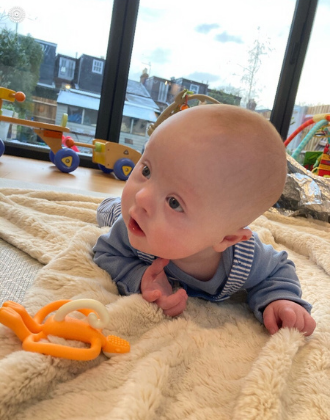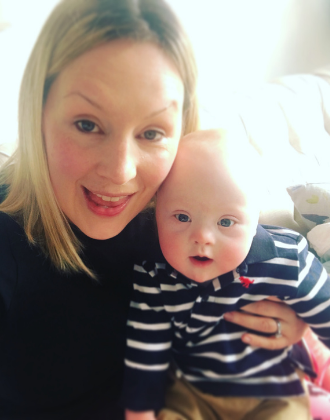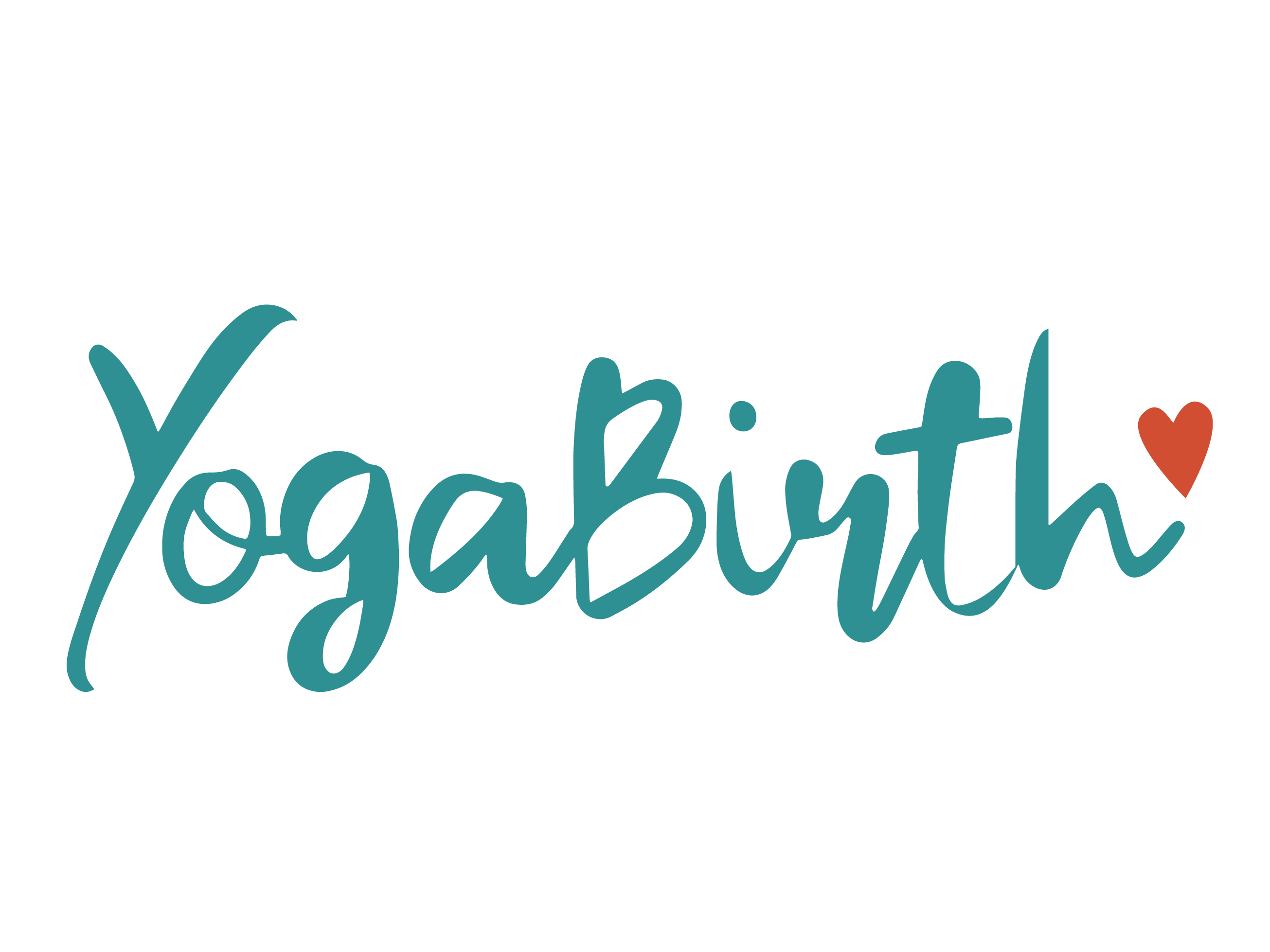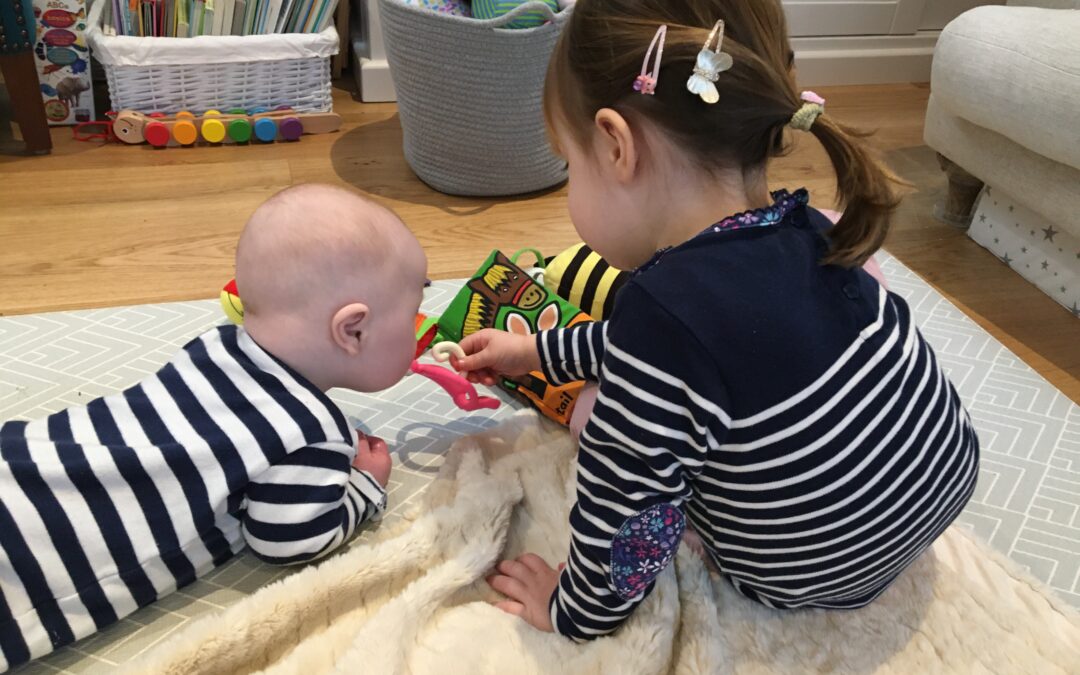World Down Syndrome Day – Meet Aiden
By Zilla Bowell
Finding out about Aiden’s condition when I was 3 months pregnant, and confronting what that means for him, me, and my family, has been very difficult. Very simply though, I want my baby to be happy. And I will do everything I can to enable him to be.

What is Down Syndrome?
Down Syndrome is a naturally occurring chromosomal condition. 40,000 people in the UK live with it. And yet the care you receive when you are pregnant and you find out that your baby has it, or might have it, is poor, partial, and lacking many basic facts. I think this allows fear to take over, and I think that is partly why around 9 in 10 women in that position choose not to go ahead with their pregnancy.
21st March each year is World Down Syndrome Day, given that Down Syndrome means that a person has 3 copies of the 21st chromosome.
So what do I want you to be aware of, today? I would like you to be aware that if you are in the position of receiving a prenatal diagnosis of Down Syndrome for your baby, or a high chance screening result, there are organisations that you can speak to, to help you understand the condition, and what it could mean for you and your baby. The Down Syndrome Association and the Positive About Down Syndrome charity are two that I think are very good.
Second, that the life that you and your baby will have, will be as happy as you want to make it. Having a child with a learning disability and some degree of physical disability, because Down Syndrome is both, is sometimes different and sometimes absolutely the same. You just have a head start on knowing what some of your child’s challenges will be, whereas with a typical child you don’t.
Aiden, My Beautiful Boy
I fell in love with Aiden when he was born, and the immense amount of uncertainty and fear that had been weighing me down for months started to lift. His sister adores him and he brings joy to all of us. When I look at him and hold him I can’t imagine him not being here. He is my beautiful boy.
Fighting for the right opportunities and support for him takes energy, and it annoys me when some people don’t share my ambitions for him. Like enabling him to wean safely with the help of an adaptive highchair at the right time, just as you would wean a typical child at 6 months. Aiden has low muscle tone, which is a feature of his condition, meaning that at the moment his head and neck control will make it harder for him to sit in a standard highchair and enjoy meal times. He can and he will eat, he just needs a different chair for a while to support him to do so. He will develop stronger muscles, and we do therapeutic play to encourage that, with the help of a lovely physiotherapist who visits us. I will do all of that to ensure he can thrive, just as I do things to ensure my older typical child will thrive.

His Name Is Aiden. Down Syndrome Doesn’t Define Him.
I am being deliberate with my language. This is because inclusion and inclusive language is also something I want you to be aware of. Aiden is not abnormal. He is not a Downs baby. He is not slow, weak, floppy, behind, delayed and dysmorphic. These are not words I want him to repeatedly hear and be defined by. And all of these words have been used repeatedly by people and medical professionals, directly or by inference, in his presence.
His name is Aiden. He has a disability. He has Down Syndrome. He will achieve what he wants to, and it will sometimes be in a longer timeframe than for a typical child. That is fine. Being careless with your language and identifying Aiden only by his condition fails to put him first, and fails to recognise his individuality. This makes me angry, just as you might be angry if someone picked a physical characteristic that you or your child have, and called you only according to that. Most people realise that inclusive and non offensive language is important to use when it comes to race, ethnicity, sexual orientation, and many other characteristics. But sometimes with disability people seem to be stuck in the dark ages, and this needs to change.
So please do talk to us, if you’re in a shop and you see my beautiful baby cackling in his pram. If you are an occupational therapist, a nurse, a pharmacist, a parent doing a drop off at nursery or school, at the swings in the playground, or checking Aiden’s heart in hospital. But please be mindful of your language, and know that Aiden can hear you and understand you too. Some of my friends with children with Down Syndrome have had people ignore them because they don’t know what to say, and I find that incredibly sad. What I want for my child is for him to be included, and to have every opportunity to thrive, and that starts from now.
YogaBirth Yoga With Caroline
Moving onto the positive! And the reason I was asked to write this. I have done yoga with Caroline during both my pregnancies and post-natally. All of the circumstances I’ve described have created a lot of anxiety for me, and yoga is the time and the place in the week where I can calm down, breathe, quiet my mind, and focus on my health and peace. I find it hard to do that some of the time, and the relaxation and discipline from a Zoom session on a Tuesday morning is something I really enjoy. I’m really looking forward to getting back in the studio too.
Caroline has been my teacher for a few years, and her incredibly relaxed and understanding presence has guided me through lots of these times. She was very helpful whilst I was preparing for a Caesarean birth, and the inclusivity I mentioned that I find important, she has always extended to me. I used breathing and hypnobirthing techniques during both of my births, that she taught me, to enable me to walk myself into an operating theatre and have surgery while conscious, to ensure the safe delivery of my babies.
On a physical level being a mum can be hard! You are always holding your baby, feeding them, burping them. Dealing with your body that has changed a lot, with posture that can be uncomfortable, and Caroline always tailors what our class wants to focus on that week, to tackle our aching shoulders, backs, pelvises – or whatever it might be. The women I’ve met during her classes are friends now as well, which is an extra bonus, and I can’t recommend the classes enough.
How can I find out more?
If you’d like to find out more about Down Syndrome and what it can mean for new parents, head to https://www.downs-syndrome.org.uk/for-new-parents/.
Find out more about Caroline’s yoga classes, head to https://yogawithcaroline.co.uk/

